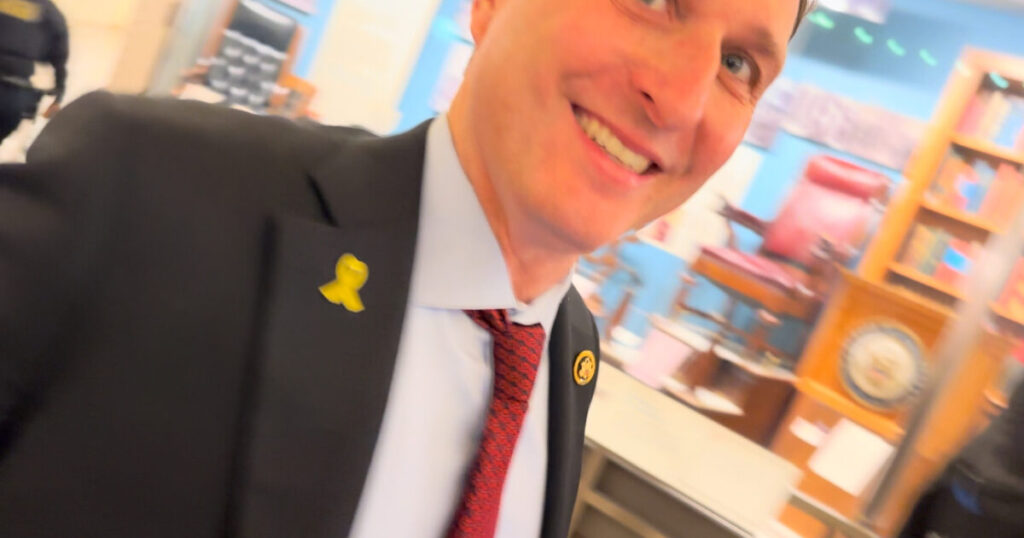Rep. Dan Goldman (D-NY) faced scrutiny on Thursday for his previous statements opposing a pardon for Hunter Biden after President Joe Biden granted his son a full and unconditional pardon on Sunday. This controversial decision absolves Hunter Biden of federal crimes committed between 2014 and 2024, including serious charges of tax fraud and felony gun violations. The sweeping nature of the pardon raises significant questions, as it extends immunity not only to these specific legal issues but also potentially to other allegations involving drug use, financial misconduct, and influence peddling—particularly stemming from Hunter’s involvement with Ukraine’s Burisma energy firm since 2014.
The implications of this pardon are profound, as it protects Hunter Biden from prosecution related to various allegations of wrongdoing, including sharing classified information with foreign business partners and accepting gifts that could be interpreted as exchanges for sensitive State secrets. The timing of this pardon is notable, especially given the previous assurances from Biden, the White House, and various Democrats that Hunter would not receive such clemency under the pretext of adhering to the rule of law. Such assurances were abruptly rendered untrue with the issuance of the pardon, feeding into narratives of double standards in the application of justice.
In a previous statement, Goldman expressed his belief that a pardon would be a “mistake,” asserting confidence that President Biden would not go such a route. However, the recent developments starkly contradict his earlier assertions, as the President did indeed grant the pardon. CNN addressed this contradiction during an interview with Goldman, where he was compelled to confront video footage of his prior remarks. Rather than disavow his earlier statements, Goldman attempted to spin the narrative, suggesting that had a plea deal been successful, the pardon may not have been necessary—a claim that CNN anchor Brianna Keilar effectively countered by pointing out that the plea agreement had already collapsed.
The encounter on CNN not only highlighted Goldman’s shifting stance on the issue but also underscored the broader political ramifications of the pardon. How Democratic leaders, particularly those who have vocalized concerns about Hunter Biden’s legal troubles, reconcile their past positions in light of this decision remains a contentious point of discussion. This episode serves to illuminate the growing divide within the Democratic Party as it grapples with the complex implications of Hunter Biden’s legal issues and their intersections with broader themes of accountability and transparency in governance.
The Gateway Pundit correspondent Jordan Conradson engaged Goldman directly after the CNN interview, pressing him to clarify whether he still believed Biden’s pardon was a mistake. In a telling response, Goldman declined to provide a definitive answer, which furthers the narrative that Democrats are struggling to maintain a coherent position on the issue. This reluctance to engage openly on a topic that is increasingly fraught with political sensitivity suggests an awareness of the potential backlash from constituents who expect accountability from elected officials, especially regarding issues surrounding the Biden family’s controversies.
Ultimately, the decision to issue a pardon is emblematic of the complicated dynamics at play within American politics, particularly for the Democratic Party as it seeks to navigate the implications of Hunter Biden’s actions while managing the political fallout from the pardon. As more details surrounding the motivations and ramifications of the pardon come to light, the responses from party leaders like Goldman will likely influence public perception and the ongoing discourse on the rule of law, ethics in politics, and the treatment of politically connected individuals when facing legal scrutiny. The headlines generated from this incident could resonate well beyond the immediate context, shaping the narrative landscape for both the Biden administration and the Democratic Party as they look toward future elections.

